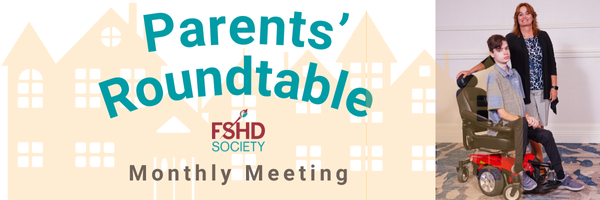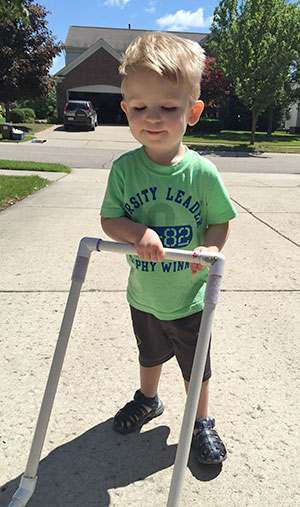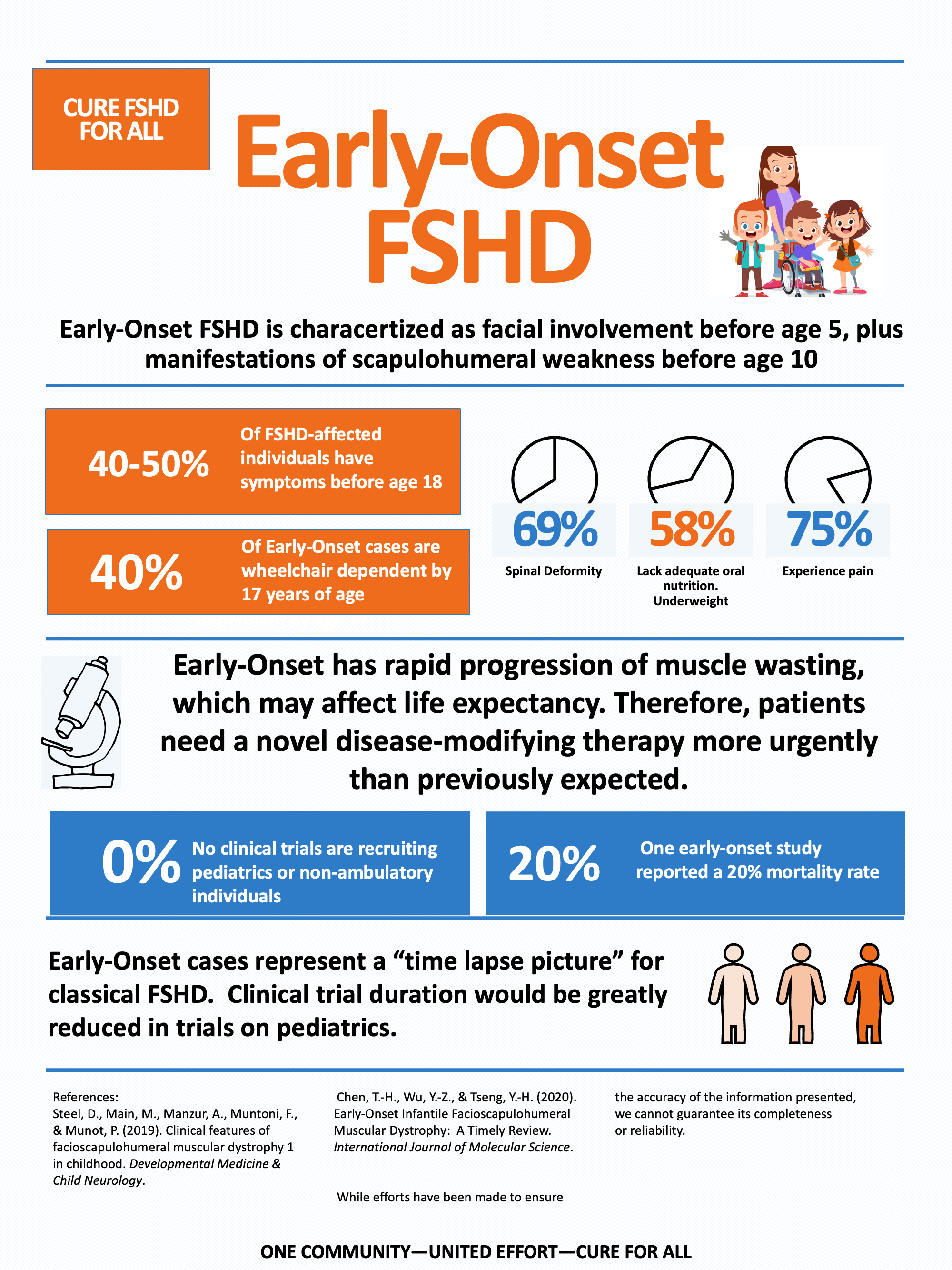What is Early-Onset or Infantile FSHD?
Early-onset FSHD (also called infantile FSHD) is a less prevalent form of FSHD characterized by facial weakness appearing before the age of 5 and/or scapulohumeral (shoulder and arm) weakness before age 10. About 5-10 percent of FSHD is early-onset, so its prevalence is around 1 in 200,000 out of the general population.
Compared to people with “classical” FSHD, whose major symptoms start to manifest in adolescence and adulthood, individuals with early-onset FSHD seem to progress more rapidly. While classical FSHD typically progresses slowly, with around 20-25 percent of those over age 50 needing a wheelchair, people with early-onset FSHD may need a mobility device sooner, by their 20s or 30s, and a few require a wheelchair in their first decade. Children with early-onset FSHD also face a higher risk of complications involving vision and hearing. These are treatable if caught early.
When your child is diagnosed with FSHD
This is difficult news for any parent to hear, but we want you to know that children diagnosed with early-onset FSHD can thrive and succeed in school and careers. It helps to plan, know how to get the resources you need, and have support from family and community. Our Parents' Roundtable, led by parents of early-onset individuals, is where you can learn invaluable information and feel supported.
Understanding what you’re dealing with will help your child. You’ll have better outcomes if you are pro-active rather than reactive. This means knowing how symptoms might progress, receiving necessary tests and physical and occupational therapies, and being ready to deal with the potential physical challenges and changes that lie ahead.
Research Advocacy
Because 90 to 95 percent of FSHD has a later age of onset, early-onset FSHD has not been studied as extensively. Unfortunately, this means drug companies lack good data for designing clinical trials for early-onset individuals. The good news is that both early-onset and “classical” FSHD share the same genetic basis, so treatments developed for the more common form of FSHD are expected to work for early-onset as well. We empathize deeply with parents who want their children to have access to experimental, if unproven, treatments in clinical trials. We believe the best strategy to get effective treatments to early-onset patients is to support ongoing clinical trials for adults with FSHD. This is a faster, lower-risk approach to getting treatments approved by the FDA. The FSHD Society will advocate vigorously for early-onset patients to have access to approved treatment as quickly as possible.
Our recent FSHD University webinar with Dr. Tina Duong provides an overview the current scientific understanding of FSHD and some thoughts about clinical trials readiness for the early-onset community.
Additional Resources for Parents and Researchers
This section contains overviews of and links to: parent and caregiver perspectives and testimonials; online databases and resources; current Early-onset FSHD research; and Frequently Asked Questions (FAQs).
QUICK LINK: Browse publications detailing early-onset and pediatric FSHD>>






